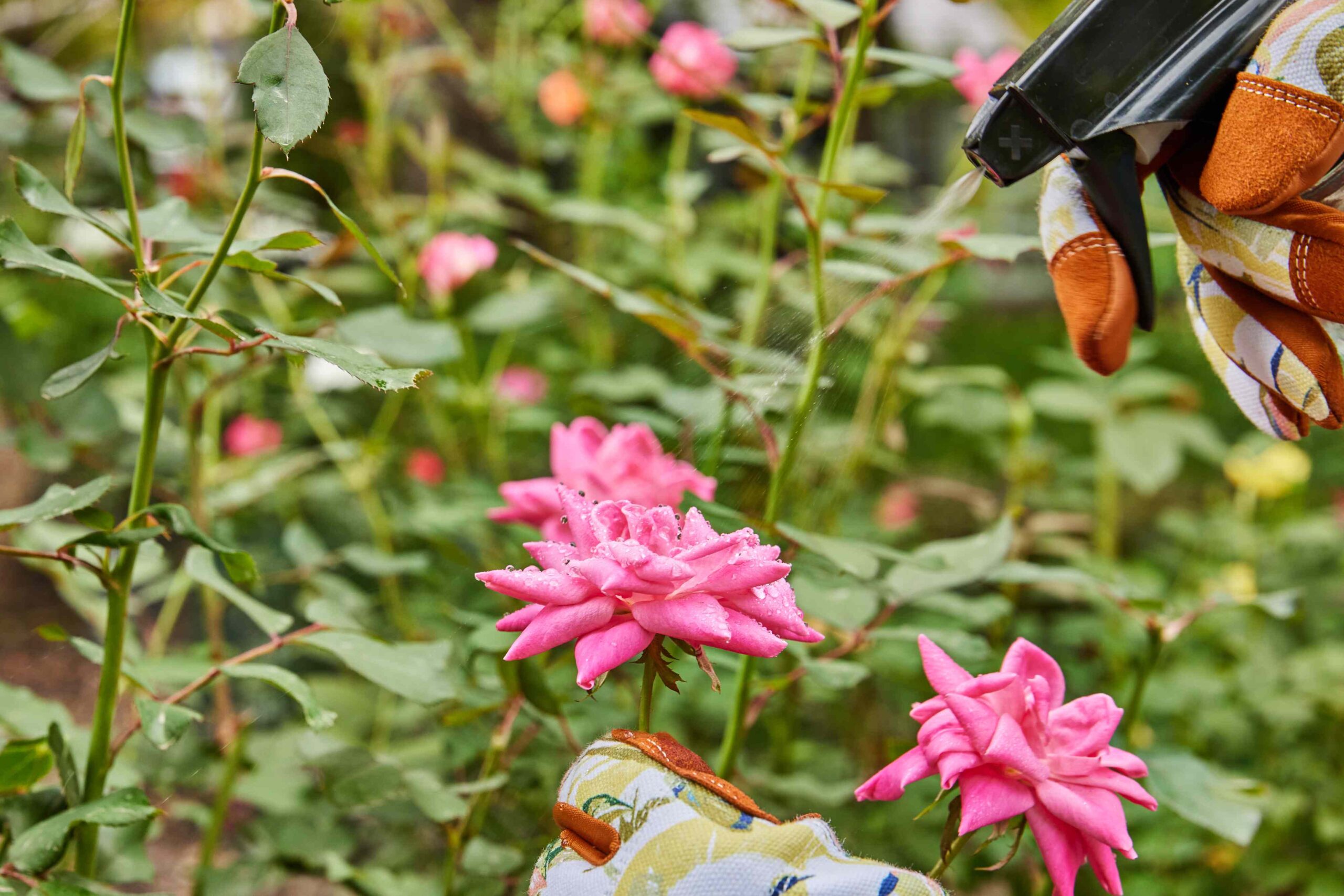You could spend significant money buying pesticides, fertilizers, and fungicides to keep your garden, or you could use a simple product that you already have sitting in your medicine cabinet.
Hydrogen peroxide is one of the most cost-effective and efficient products you can use in your garden, and, when used correctly, it can tackle everything from improving germination to ridding your plants of pests to boosting growth and preventing fungal diseases. It’s a multi-purpose product that costs you pennies on the ounce.
Here’s how to use hydrogen peroxide in your garden to fight fungus, promote roots, and more.
Meet the Expert
Sara Rubens is a certified garden coach and founder of Seed to Sanctuary.
Is Hydrogen Peroxide Safe to Use in the Garden
Hydrogen peroxide is completely safe to use in your garden, as long as you use it properly.
Sara Rubens, certified garden coach and founder of Seed to Sanctuary, explains, “Hydrogen peroxide is a useful tool in the garden when diluted properly.”
She notes that if you’re using it as a soil drench, which is one of the most common ways to apply it to plants, then there’s an easy formula to make sure it’s diluted enough.
“Mix one part 3% hydrogen peroxide with four parts water and apply it around plant bases every one to two weeks to prevent root rot and boost oxygen in the soil.”
However, Rubens recommends spraying hydrogen peroxide outside of hot, sunny hours to avoid damaging leaves.
Want more gardening tips? Sign up for our free gardening newsletter for our best growing tips, troubleshooting hacks, and more!
5 Ways to Use Hydrogen Peroxide in the Garden
Hydrogen peroxide can be a gardener’s best friend – if you know all the ways to leverage it. Here are five of the primary ways that you can use hydrogen peroxide to bring out the best in your garden.
- Use hydrogen peroxide as a natural way to control pests. “For pest control, a stronger dilution of one part peroxide to three parts water may be used directly on soft-bodied insects, though it’s important to spot-test sensitive plants first,” says Rubens.
- Apply hydrogen peroxide as a fungicide. Rubens suggests, “A foliar spray made with one tablespoon of 3% peroxide per quart of water can treat powdery mildew and other fungal issues.”
- Stop root rot with a hydrogen peroxide mix. Use the one-to-three ratio to fight the pathogens that cause root rot to start (in addition to the soil being too moist!).
- Soak seeds to improve germination. Rubens explains that a diluted hydrogen peroxide will improve germination by disinfecting the seeds. “Soak seeds for 10 to 20 minutes before planting to kill pathogens and improve germination,” says Rubens. This will also soften the exterior of the seed, which is beneficial in helping it sprout.
- Apply hydrogen peroxide to help aerate the soil. Hydrogen peroxide can help improve soil quality by adding oxygen into the soil and aerating it in the process. Rubens explains, “Many gardeners use it to improve soil aeration and root health, as it breaks down into water and oxygen.”
Warning
Hydrogen peroxide is safe when, like many things, used in moderation. “Overuse can harm beneficial soil microbes, and some delicate plants (like ferns or orchids) may be too sensitive,” says Rubens.
Tips For Using Hydrogen Peroxide Around the Garden
Using hydrogen peroxide around the garden can be a budget-friendly and effective way to both disinfect your plants and boost their growth. But there are a few nuanced rules to follow as you use this household chemical compound in your garden.
- Hydrogen peroxide should be diluted to one part hydrogen peroxide and four parts water for most garden uses. If you’re using it for stronger pest control, you can increase it to one part hydrogen peroxide and three parts water.
- Hydrogen peroxide should be used only occasionally and for specific and targeted uses. If it’s used daily, it can damage plants the same way it would if it were left undiluted.
FAQ
-
Diluted properly, hydrogen peroxide is safe to use on all plants. However, if it is not diluted properly, it can damage plants.











